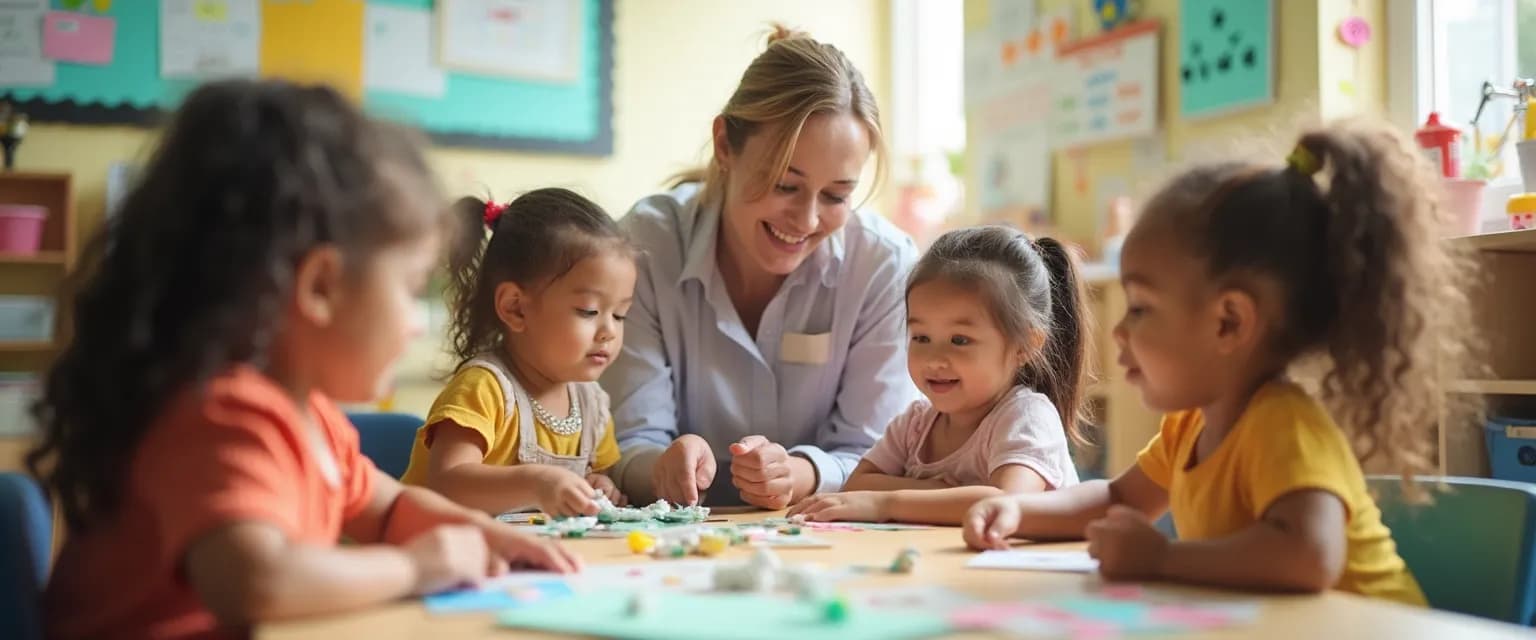5 Classroom Activities to Foster Self-Awareness in Early Childhood Education
Nurturing self awareness in early childhood education creates a foundation for emotional intelligence that serves children throughout their lives. When preschoolers begin to recognize their feelings, preferences, and unique qualities, they develop crucial skills for social interaction and emotional regulation. As educators, we have a special opportunity to guide young minds through this important developmental stage with intentional activities that make self-discovery fun and accessible.
Preschool classrooms provide the perfect environment for children to explore who they are in relation to others. Through carefully designed activities that promote mindfulness techniques for young children, teachers can help their students develop a healthy sense of self. Let's explore five practical classroom activities that foster self awareness in early childhood education settings, along with implementation strategies that make these practices effective.
Why Self-Awareness in Early Childhood Education Matters
Between ages 3-5, children's brains are developing neural pathways that will shape how they perceive themselves and interact with the world. Self awareness in early childhood education serves as the cornerstone for emotional regulation, as children must first recognize emotions before they can learn to manage them. Research shows that preschoolers who develop strong self-awareness skills demonstrate greater readiness for academic challenges when they enter elementary school.
When teachers intentionally incorporate self-awareness activities into their curriculum, they help children develop essential life skills. Preschoolers who understand their emotions are better equipped to navigate social situations, communicate their needs effectively, and develop empathy for others. These early experiences with emotional awareness techniques create patterns that shape a child's approach to relationships and learning.
Neuroscience confirms that the preschool years represent a critical window for developing emotional intelligence. During this period, children are particularly receptive to guidance that helps them identify and express their feelings, making it an ideal time to emphasize self awareness in early childhood education programs.
5 Effective Activities to Promote Self-Awareness in Early Childhood Education
1. Emotion Check-In Circle
Start each day with a circle time activity where children identify how they're feeling using visual emotion cards. Ask simple questions like "How does your body feel today?" or "What color matches your mood?" This regular practice helps preschoolers build vocabulary for their emotional experiences and recognize that feelings change throughout the day.
2. My Body Signals
Teach children to connect physical sensations with emotions by creating a "body map" where they draw or place stickers showing where they feel different emotions (butterflies in stomach for nervousness, warm cheeks for embarrassment). This activity helps children recognize emotional cues before they escalate.
3. Five Senses Exploration
Guide children through simple sensory awareness exercises by focusing on what they can see, hear, smell, taste, and touch in the present moment. These micro-mindfulness practices help children tune into their bodies and develop greater awareness of their surroundings.
4. Mirror Play
Using mirrors, encourage children to make and identify different facial expressions. This activity strengthens self-recognition and helps children connect facial expressions with emotional states. Teachers can guide children to notice how their face changes when they feel happy, sad, or surprised.
5. Preference Charts
Create simple visual charts where children can indicate their likes and dislikes across various categories (foods, activities, colors). This helps children recognize their unique preferences and builds confidence in expressing their authentic selves.
Implementing Self-Awareness in Early Childhood Education: Tips for Success
For maximum impact, integrate these self awareness in early childhood education activities into daily routines rather than treating them as special events. Consistency helps children internalize these practices and make them part of their natural thinking process. Create a classroom environment where all emotions are acknowledged as valid experiences, using phrases like "I notice you're feeling frustrated" instead of "Don't be upset."
Partner with parents by sharing simple versions of these activities they can continue at home. This reinforcement across environments strengthens children's developing self-awareness skills. Use developmentally appropriate language when discussing emotions, focusing on concrete terms and simple explanations that preschoolers can grasp.
Track progress by noting how children's emotional vocabulary expands and how they begin to independently identify and express their feelings. Remember that self awareness in early childhood education is a gradual process that unfolds differently for each child. By providing these supportive activities consistently, teachers create the conditions for all children to develop this essential foundation for lifelong emotional intelligence.




